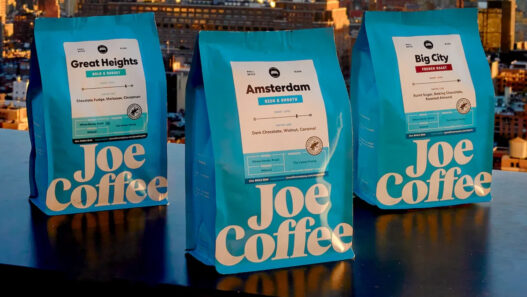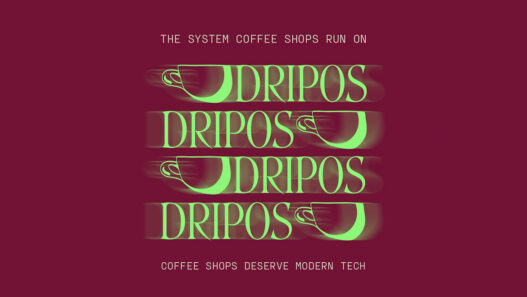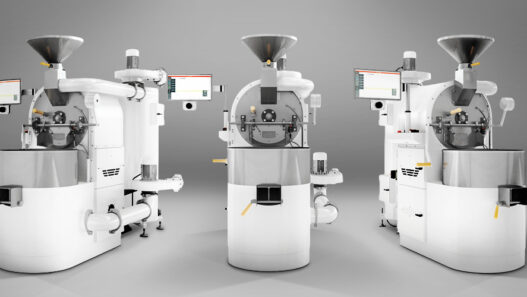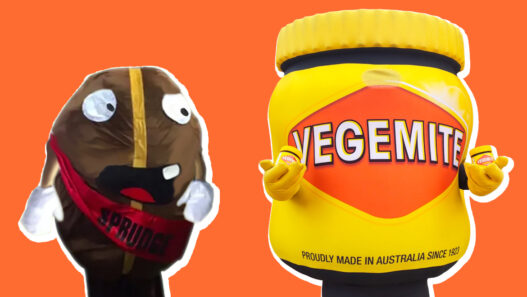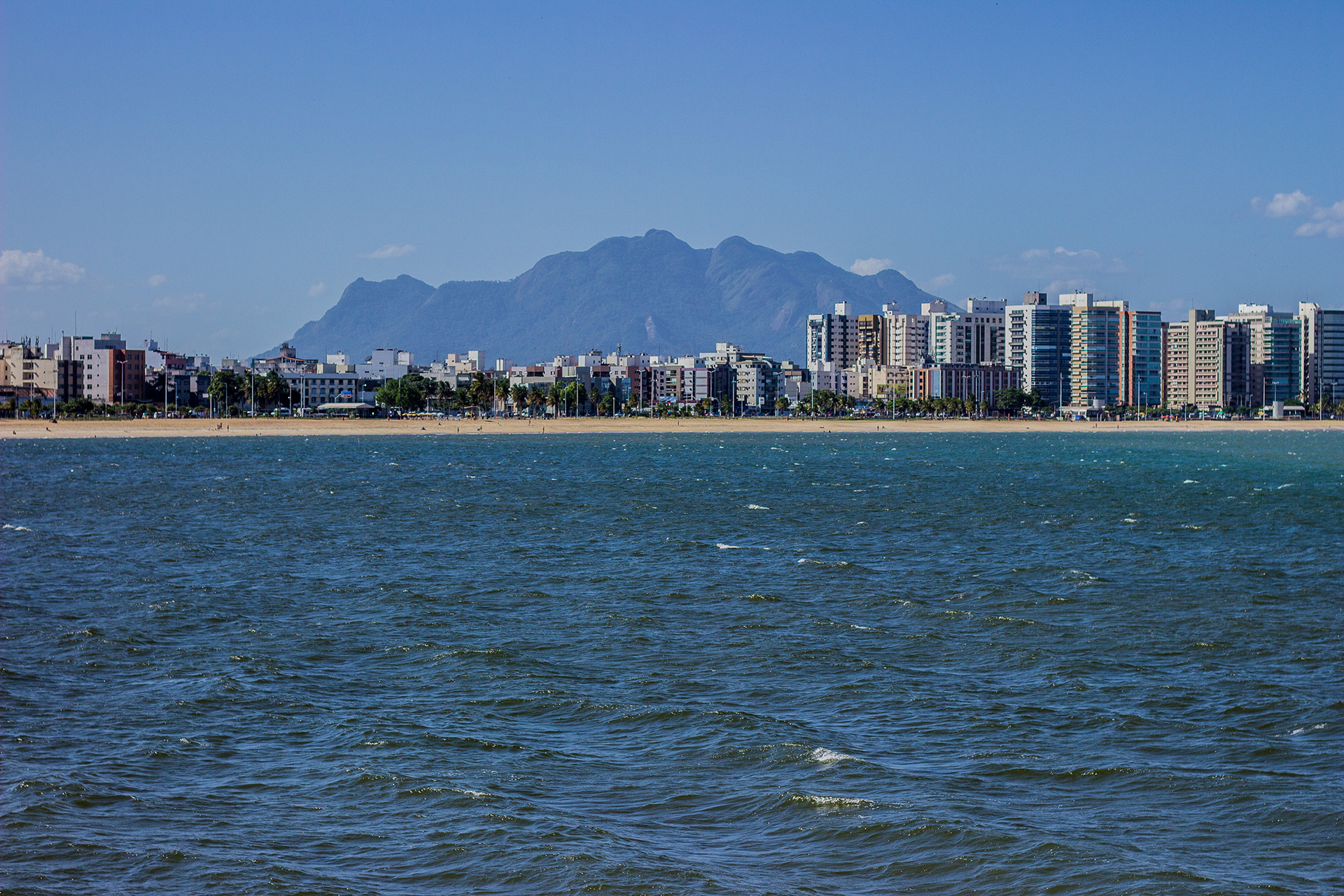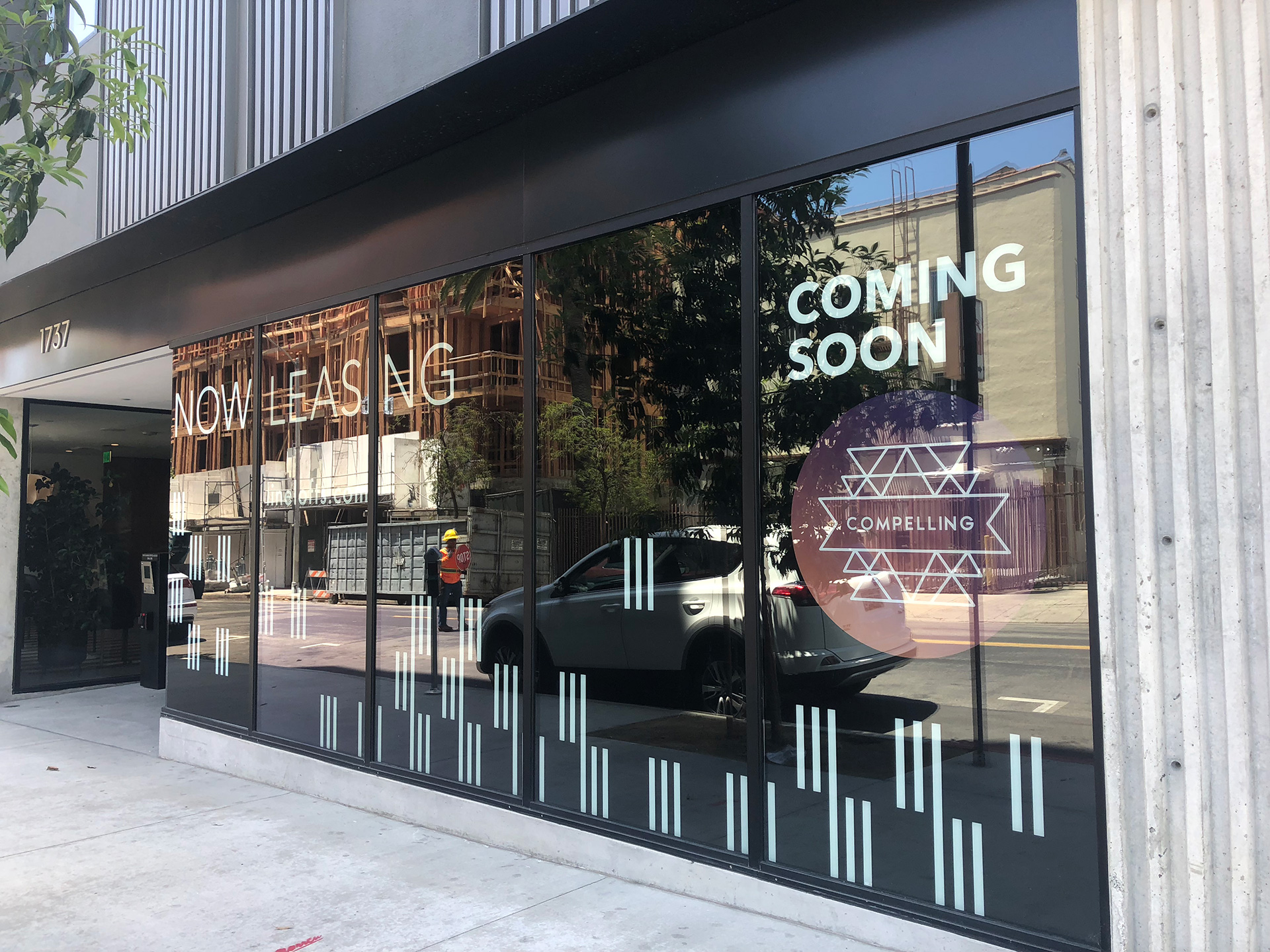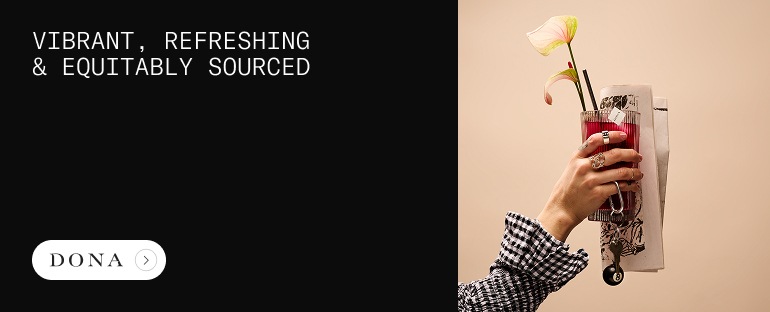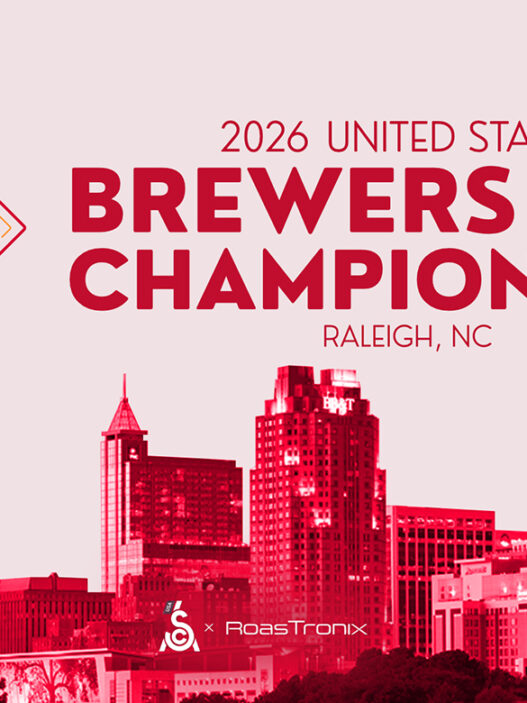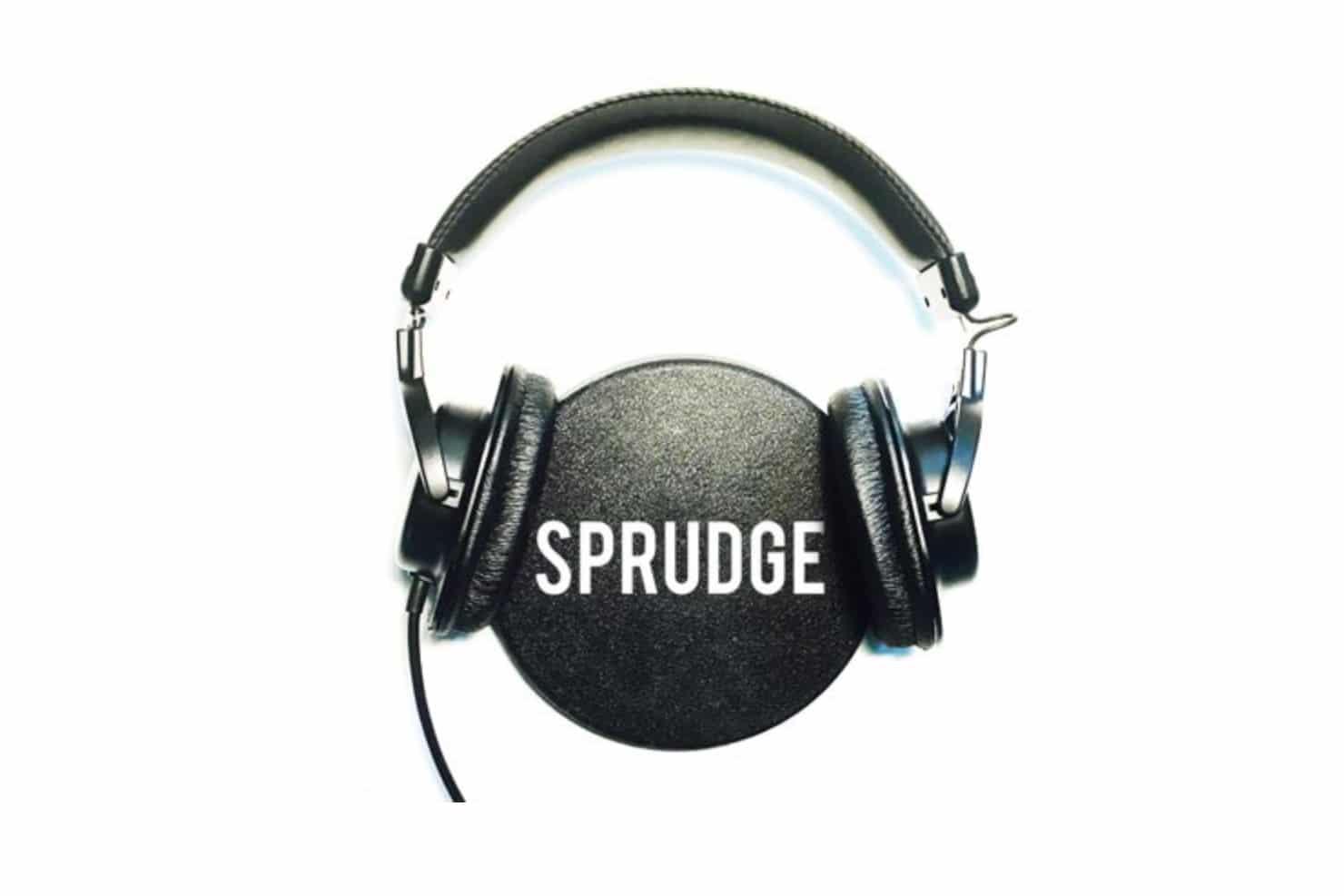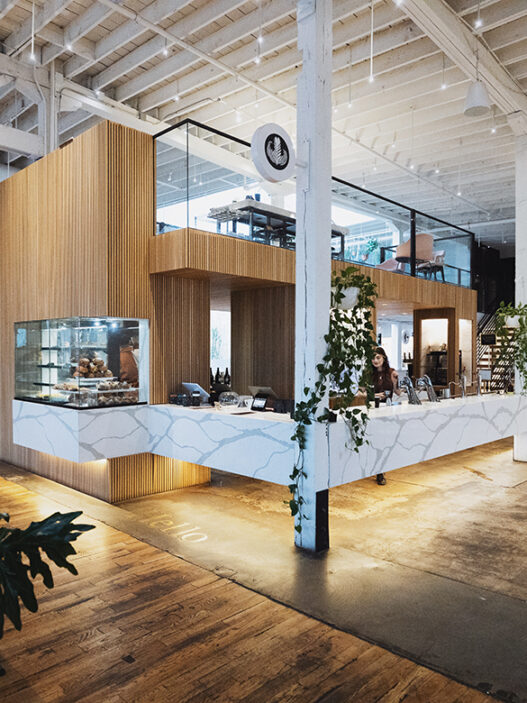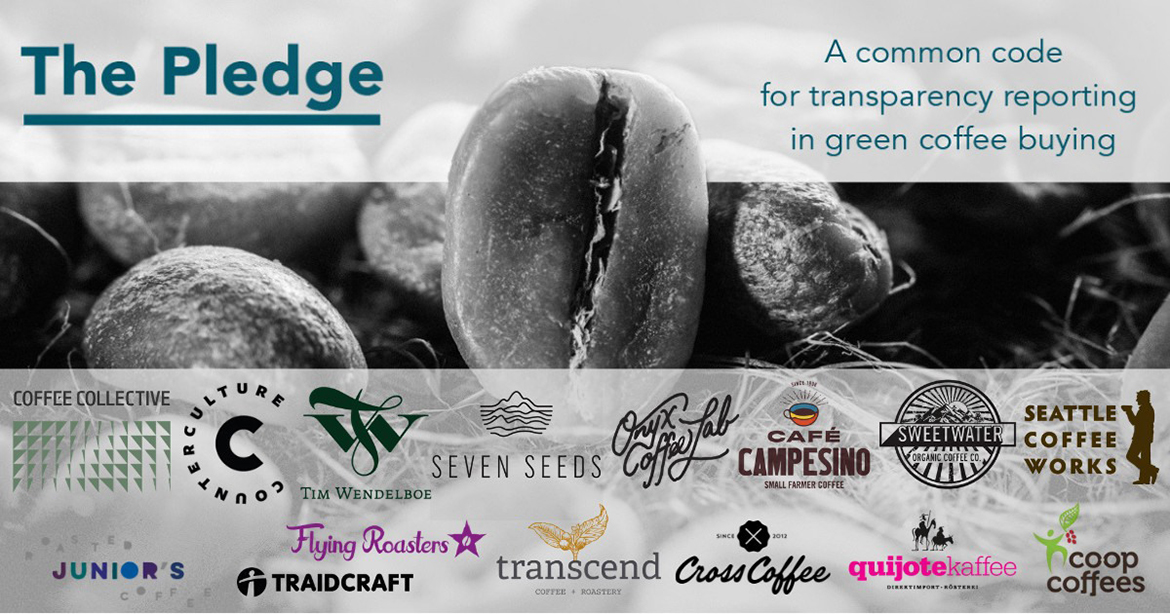
When it comes to the business of coffee buying—and the business of marketing those coffee buying practices—there’s a lot of wiggle room in the definitions. This allows companies to get away with suspet claims, like say, touting a coffee as “direct trade” without ever having to been to where the coffee is grown, or meeting the people who grow it (to say nothing of role of the importer).
There’s a lot of marketing sleight of hand that can thrive in these grey areas, and the ill-defined concepts in coffee buying are the sleeve that hides the magician’s tricks. But an international group of coffee companies are banding together to roll up those sleeves by creating “a common standard for transparency reporting.” They are called, aptly enough, Transparency Coffee and their goal is to bring transparency to coffee transparency.
Made up of 19 signatory companies in North America, Europe, and Australia—including brands like Counter Culture, Onyx Coffee Lab, Coffee Collective, Tim Wendelboe, and Seven Seeds—Transparency Coffee wants to “ensure a sustainable supply of coffee by working towards a living income for producers so they will continue to invest in the future of their businesses.” To this end, they have created The Pledge, a commitment other coffee companies can elect to take part in whereby they agree to report on “a fixed set of variables” in green coffee buying.
Along with a host of other commitments, companies that sign The Pledge agree to have at least one coffee they are selling to be included in a large-scale transparency report collated by Transparency Coffee. The report, which will be “publicly available and easily accessible,” will include producers, Free On Board (FOB) price paid, coffee quality, volume purchased, length of producer/buyer relationship, as well as the percentage by volume of “transparent coffees” that company has sold that year.
With this report, Transparency Coffee aims to not only hold themselves accountable (and put pressure on other companies to join the pledge) but to provide producers with information they can use to make sure they are receiving fair terms for their hard word.
As noted on their website, the initiative acknowledges that transparency isn’t the solution to the coffee’s price crisis. Indeed, many of the companies taking part have been on the forefront of transparency, much of their work we’ve reported on here at Sprudge over the years. They do note, however, that transparency is an incredible tool, one that when used the right way could help chip away at the problem.
But a tool is only useful when, you know, it gets used. And the initiative is off to a good start. Jonas Lorenz of Cross Coffee and Transparency tells Sprudge that over 30 new coffee companies have reached out about signing The Pledge in the first three days after its launch. As the number of companies taking part grows, so too does the report and thus, its efficacy.
For more information on Transparency Coffee or to sign up to be part of The Pledge, visit their official website.
Zac Cadwalader is the managing editor at Sprudge Media Network and a staff writer based in Dallas. Read more Zac Cadwalader on Sprudge.
Top image via Transparency Coffee




